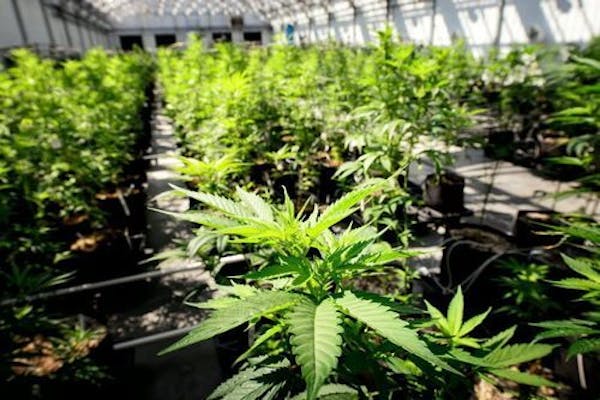Minnesota regulators announced Tuesday they will be cracking down on retailers who sell illegal cannabis flower ahead of the launch of the state's recreational marijuana market.
The Office of Cannabis Management has received some complaints about retailers who are selling illegal cannabis flower under the label of less-potent hemp. State health inspectors who have been monitoring the sale of hemp-derived edible products will now start examining raw flower to verify that it's hemp and not marijuana, which contains higher levels of THC, the ingredient that causes a high.
Although Minnesotans 21 and older can now legally use and grow their own marijuana, it's illegal to sell such products without a cannabis business license. The state's fledgling Office of Cannabis Management is still in the process of creating a licensing system and likely won't be issuing business licenses until later this year or early next year.
"While this is a temporary issue that will no longer exist once businesses are licensed to sell cannabis flower, OCM's commitment to ensuring an industry that abides by all legal requirements is steadfast and ongoing," said Charlene Briner, interim director of the Office of Cannabis Management, in a statement Tuesday. "We are confident that by providing clear expectations and guidance to businesses, the majority of operators will choose to follow the law."
State inspections of raw cannabis flower will start immediately, regulators said.
Retailers that sell raw flower must provide a lab testing certificate verifying the product's THC levels. Hemp flower must contain 0.3% or less THC. Anything above that is illegal to sell right now.
"Products for sale without a [certificate] will constitute an illegal sale," Briner wrote last week in a memo to retailers that sell hemp products.
The state is also expanding its testing capacity for cannabis products, contracting with a lab and deploying a mobile field unit.
Retailers that violate the law could have their products seized and face fines of up to $1 million. Violations may also hurt an entrepreneur's ability to receive a cannabis business license down the road.
State cannabis regulators are urging retailers to review their products for compliance.
Former DFL Senate Majority Leader Kari Dziedzic dies of cancer at age 62

How the Star Tribune is covering the 2024 election

Fact check: Walz and Vance made questionable claims during only VP debate

In Tim Walz's home city, opposing groups watch him debate on the national stage

